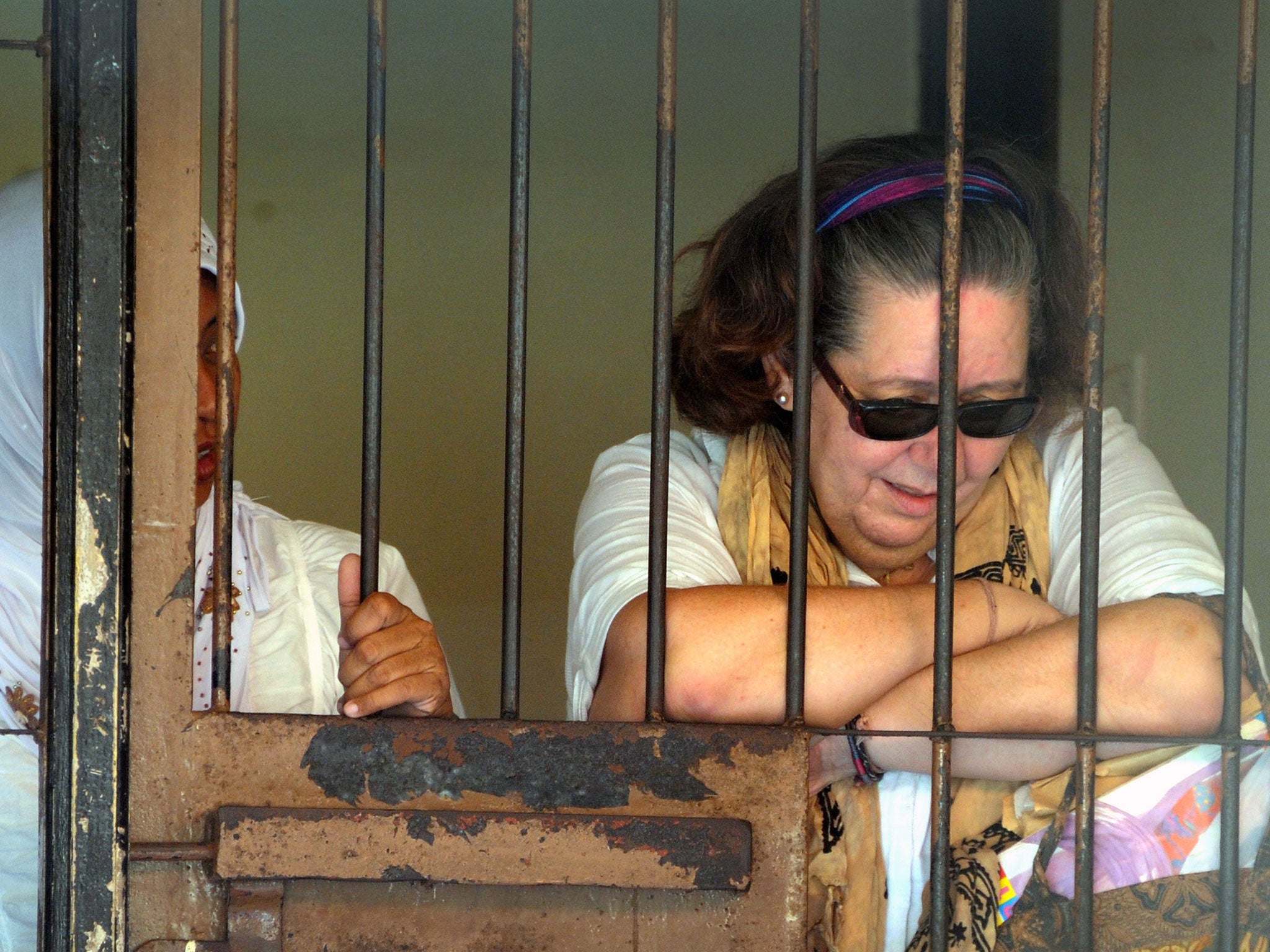New evidence in case of British woman on death row in Indonesia leads to call for Government to review its blanket ban on providing legal aid
Mrs Sandiford was refused legal funding by the Government and had to rely on supporters' donations

The UK’s highest court has cast doubt on the death sentence handed down to a British grandmother in Indonesia, raising concerns about a number of “serious issues” with the country’s legal system.
The Supreme Court yesterday called on the Government to undertake an “urgent review” of its blanket ban on providing legal aid for Britons on trial overseas after new evidence emerged in the case of Lindsay Sandiford, 57.
The grandmother from Cheltenham, Gloucestershire, was convicted last year of trafficking drugs into the island of Bali and was sentenced to death by firing squad. She has claimed she was forced to transport a stash of cocaine worth £1.6 million on a flight from Bangkok in May 2012 to protect her children, whose safety was at stake.
Mrs Sandiford was refused legal funding by the Government and had to rely on donations from supporters to finance her fight against the death sentence. But last month her QC Aidan O’Neill told the Supreme Court she had “no access to any further private funding” to launch any further challenges.
In their ruling, five of the court’s judges supported the High Court and Court of Appeal in dismissing her case, which had sought to prove that the Government’s policy was unlawful.
But one of the five, Lord Carnwath, added: “In the light of new information – not available to the lower courts – as to the course of the proceedings in Indonesia and the steps now available to her there, the court calls on the Secretary of State urgently to review the application of the policy to Mrs Sandiford’s case in the light of that information.”
The judges said the new evidence raised “the most serious issues as to the functioning of the local judicial system and its ability to deal justly” with her case.
They said that when it sentenced her, the Indonesian judiciary appeared to have ignored “substantial mitigating factors” such as her age and mental problems, her lack of any previous criminal record and her co-operation with the police, who she helped carry out a “sting” operation which led to the conviction of members of a drug syndicate.
The Supreme Court also acknowledged that Mrs Sandiford required a “substantial sum” to pay for legal assistance to help reopen the case and begin a clemency petition to the President of Indonesia.
A Foreign Office spokesman said: “We welcome the decision of the Supreme Court to find in our favour, upholding our longstanding policy of not funding legal advice and representation for British nationals overseas.”
Jago Russell, chief executive of Fair Trials International, said: “Effective legal representation abroad is a problem that affects hundreds of people every year.
"We recognise the enormous challenge and cost of implementing a policy of state-funded legal aid for everyone, but Lindsay Sandiford’s case should surely prompt the FCO to ask whether an exception should be made, at least in death penalty cases, as is already the case in countries like Austria and Spain.”